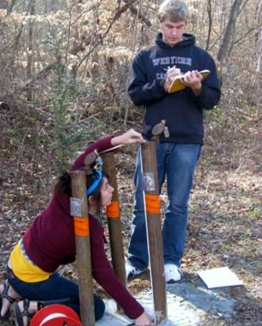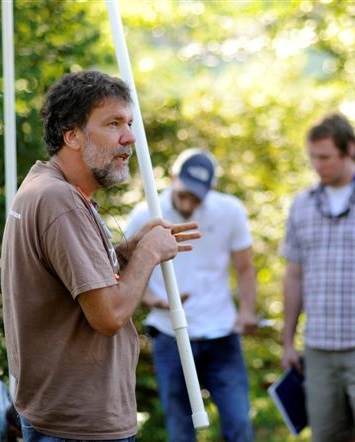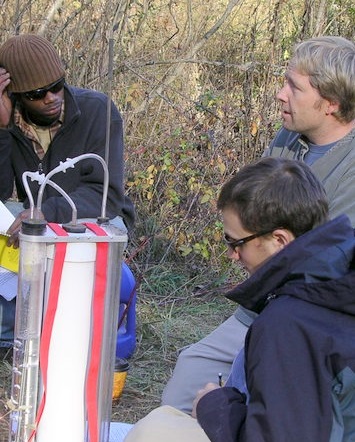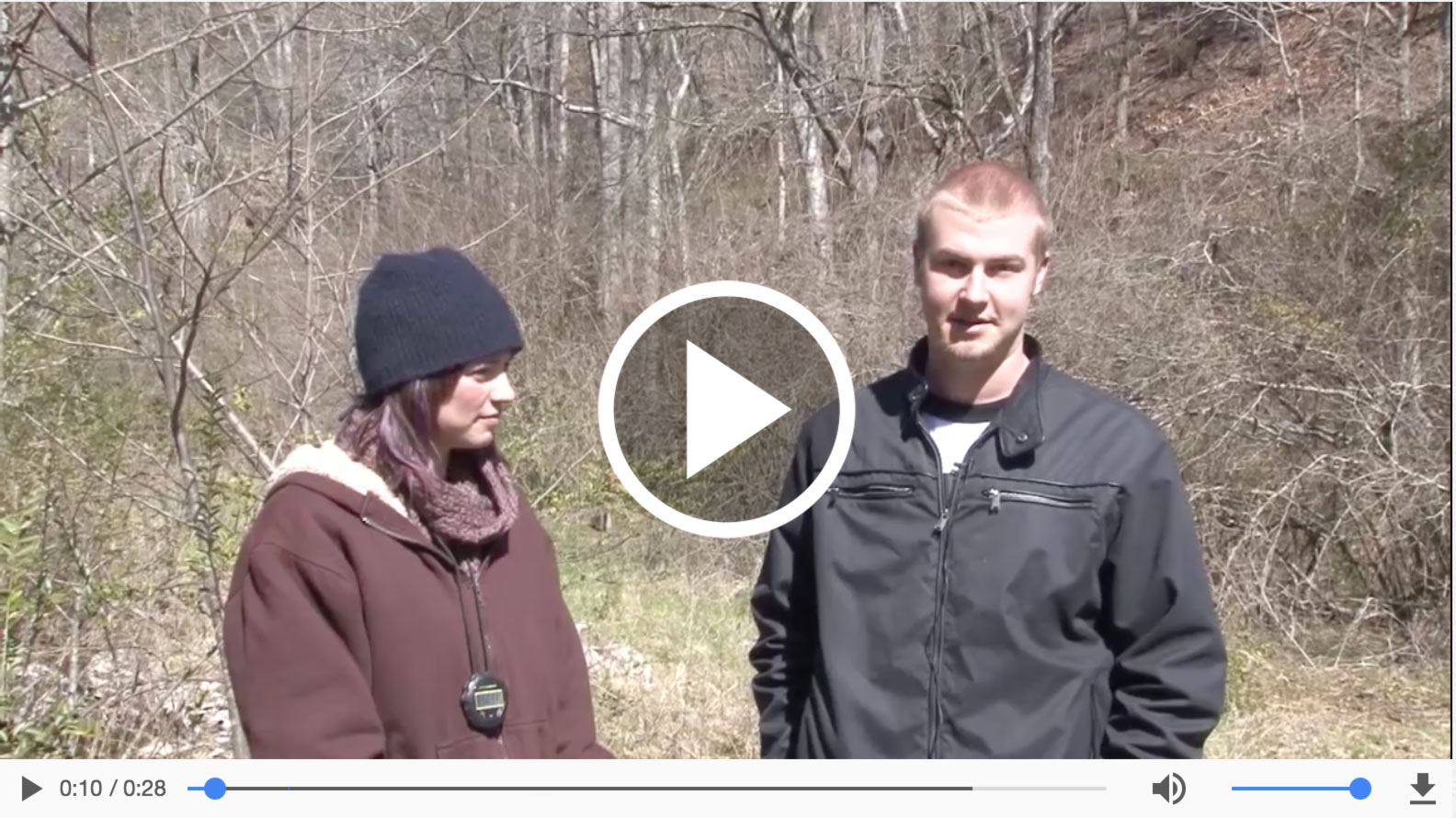- Academic Programs & Support
- Departments, Schools & Colleges
- College of Arts and Sciences
- Sciences and Mathematics
- Geosciences & Natural Resources Department
- Research and Facilities
- Western Carolina Hydrological Research Station
Western Carolina Hydrological Research Station
At the Western Carolina Hydrological Research Station (WCHRS) we are examining water movement through the Southern Appalachian mountain environment. This research, conducted by scientists from the North Carolina Department of the Environmental Quality, WCU students, and faculty is helping North Carolina mountain communities make informed choices about their water resources.
We also play a critical role in training future geoscientists as well as other WCU
students. As a part of their coursework, a wide variety of students from all across
campus have used the WCHRS to complete authentic research projects. This work is sponsored
by a grant from the National Science Foundation.

Station Research
There are three primary scientific research objectives for the site. Determine how the interaction of groundwater and stream water vary with their geomorphic setting, document where and when recharge of groundwater occurs in the watershed, especially as it relates to different bedrock and soil types, landscapes, and land covers; and understand the influence of historic land uses and ongoing changes in land cover today on water resources and quality.
Groundwater Monitoring
A groundwater well monitoring network, with over 40 wells, was established in 2010 in partnership with the North Carolina Department of Environmental Quality. Most of the wells are shallow (1 to 7 m) and located near streams. The well network was designed to study groundwater interaction with streams in a headwaters region typical of the southern Appalachians. Most groundwater levels are measured weekly by student researchers at Western Carolina University. A few wells have computer sensors so water level data are collected continuously at 15-minute intervals. Groundwater level data are periodically uploaded and made available to the public on a database maintained by the Groundwater Management Branch of the North Carolina Department of Environmental Quality. Data collected from the wells are important to answering many hydrologic research questions and learning how water resources respond to seasons, droughts, and climatic changes.

Research-Based Learning
Since Fall 2011, we have formally and systematically used a research-based learning approach in over a half dozen different geology courses at different levels. In general, our approach mimics components common to research working groups, includes numerous iterative-feedback elements, and has a strong emphasis on effective small groups. You can explore our Research-Based Learning model and see how it has been implemented in courses.

Research Facilities
The WCHRS is located on the campus of Western Carolina University in Cullowhee, North Carolina. There are currently four study areas, Cullowhee Creek, Long Branch, Gribble Gap and Upper Long Branch. Explore the facilities on an interactive map and download the Google Earth KMZ file for the facilities.
Student Resources
We believe that students should have experience with undergraduate research and that it has several benefits for students:
- Survey research indicates that employers seek many of the skills practiced in group-based undergraduate research including critical thinking, writing, and communication. Research provides access to these skills and it looks great on a resume.
- For students in a major, these activities can help clarify or confirm career plans. Students have experience doing geology, and, thus, know more about what being a geologist entails.
- As a student, you are tested intellectually by addressing complex, open-ended field problems.The research process helps you develop critical thinking skills and the ability to ask and address scientific questions.

